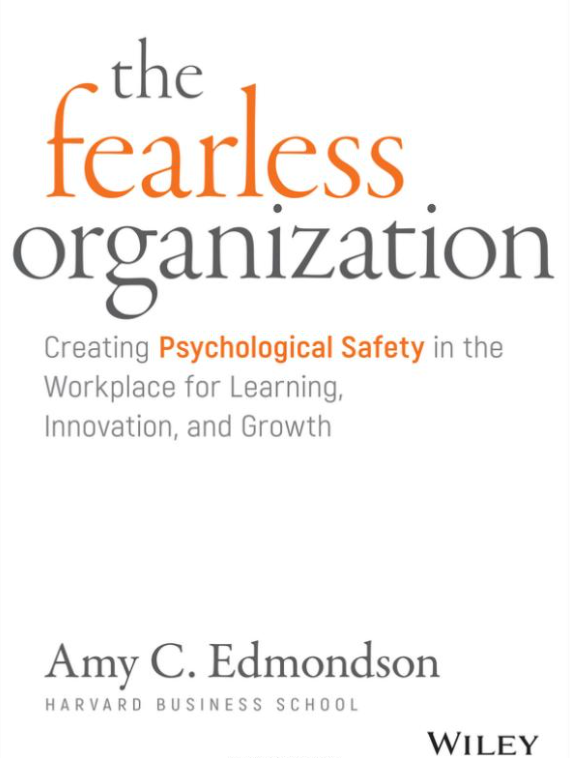Psychological safety describes a climate where people feel safe enough to take interpersonal risks by speaking up and sharing concerns, questions, or ideas. As a leader you can help this grow which can have positive benefits for learning, engagement, and performance in a wide range of organizations..
In organisations it is essential that we as knowledge workers are able speak up which allows optimised team workload we need the psychological safety to speak up and share ideas.
Our spontaneous tendency to discount the future explains the prevalence of many unhelpful or unhealthy behaviours. For example a patient not asking a doctor a question, perhaps under weighs the more important issue of the patients’ health, which would take some time to play out, and overweighting the importance of the doctor’s possible response, which would happen immediately.
Mentions another example in medicine that better teams report more errors, suggesting they are more willing to learn and open reporting culture. If someone does speak out to you as a leader you must have the initial response of appreciation, this will ensure the colleague keeps speaking up. In clinical practice this could pick up on unexpected lapses in attention or ways a system could be improved potentially lives could be saved. Afterwards consider educating by giving feedback or explain clinical subtleties. In essence a culture of silence is a dangerous culture, avoid this.
So what are the common reasons for not speaking up and remaining silent:
1. Fear of being viewed or labelled negatively.
2. Fear of damaging work relationships.
3. Excessive confidence in an authority
The benefits of speaking up are often unclear and delayed while the costs are tangible and immediate. As a result, we consistently underweight the benefits and overweight the costs. Another way to think about the voice-silence asymmetry is captured in the phrase “no one was ever fired for silence.” Potentially people don’t speak up as they don’t want the immediate risk to them as an individual, even if their knowledge could provide longer term benefit for the company.
These fears, which are definitionally the opposite of psychological safety, have no place in the fearless organization. Worker safety starts with encouraging and reinforcing employees’ speaking up about hazards and other concerns. Focus groups can help overcome the tendency for silence as participants know they are meant to speak up.
A workaround accomplishes the immediate goal, but can potentially do nothing to diagnose or solve the problem that triggered the workaround in the first place. Suggests if too many workarounds are occurring potentially psychological safety in that group is missing.
Leaders who welcome only good news create fear that blocks them from hearing the truth.
◾ Many managers confuse setting high standards with good management.
◾ A lack of psychological safety can create an illusion of success that eventually turns into serious business failures.
◾ Early information about shortcomings can nearly always mitigate the size and impact of future, large-scale failure.
Remember we can’t force people to change how they think and act, even when we have formal responsibility over them – let alone when we don’t. We can only influence them so be curious and compassionate to others. A compelling company purpose combined with caring leadership motivates people to go the extra mile to do what’s needed to ensure safe work practices and employee dignity. Clear, direct, candid communication is an important aspect of reducing accidents.
Humility is the simple recognition that you don’t have all the answers, and you certainly don’t have a crystal ball. Research shows that when leaders express humility, teams engage in more learning behaviour. Failure is failing to fail which in turn is not allowing you to fail and learn. We must learn from failure.
Creating psychological safety is a constant process of smaller and larger corrections that add up to forward progress. You must zig right and then zag left and then right again, never able to head exactly where you want to go and never quite knowing when the wind will change.



